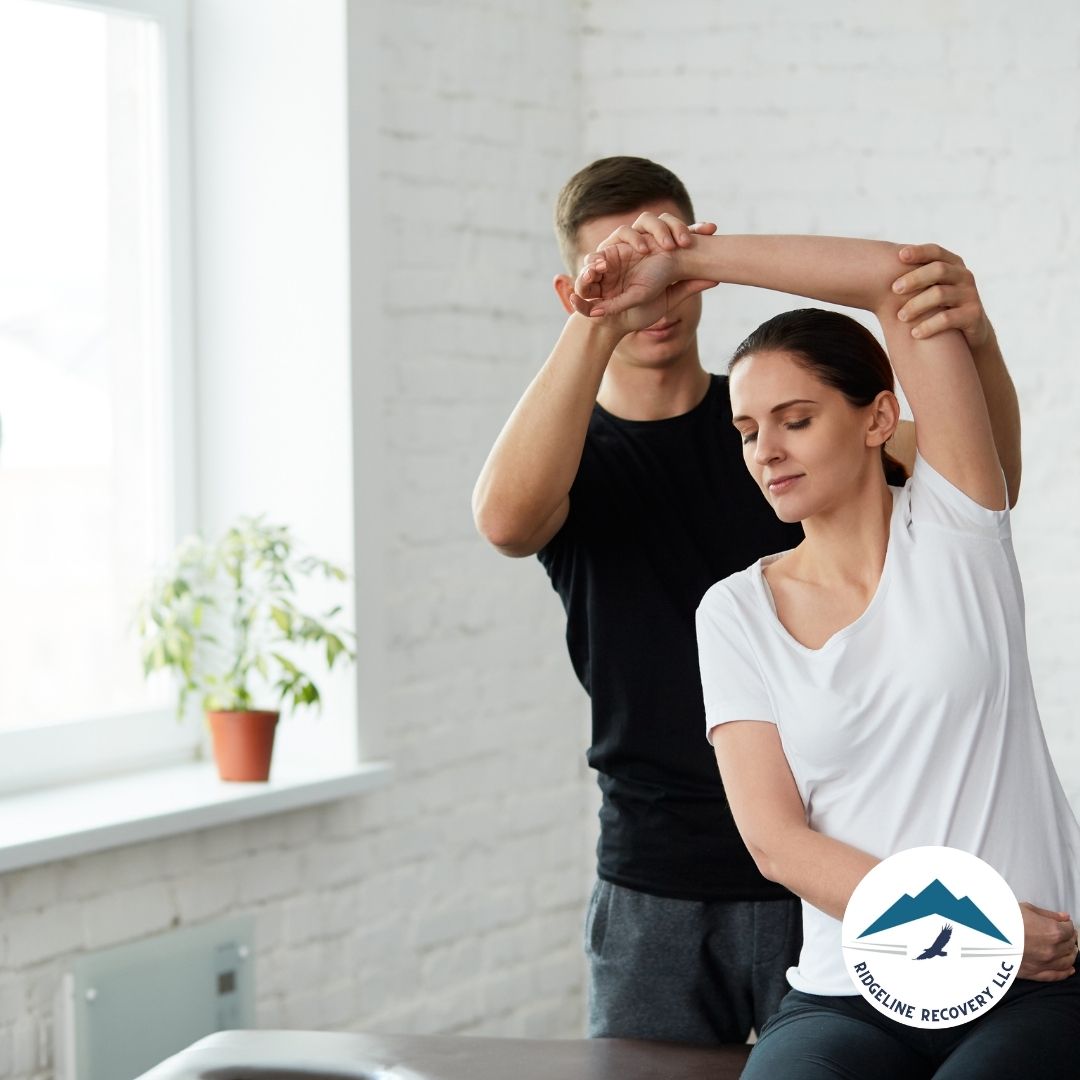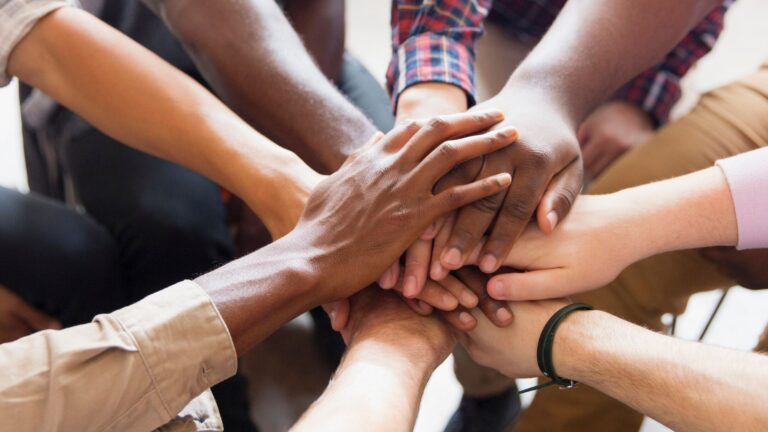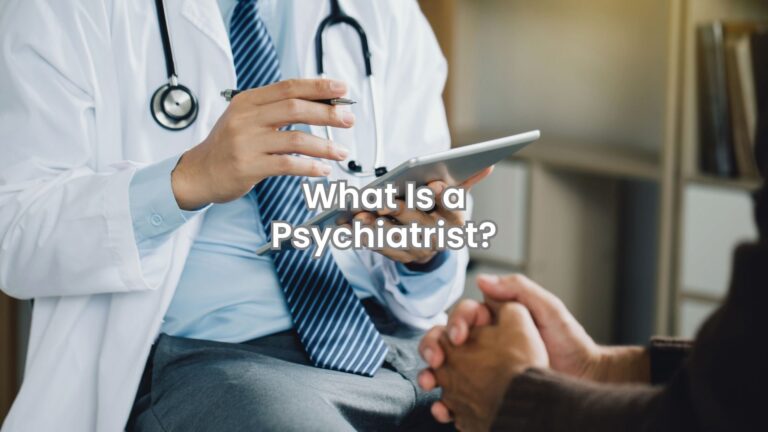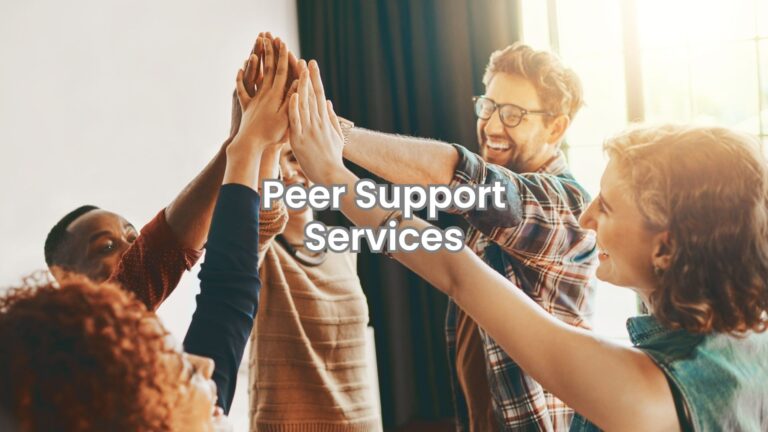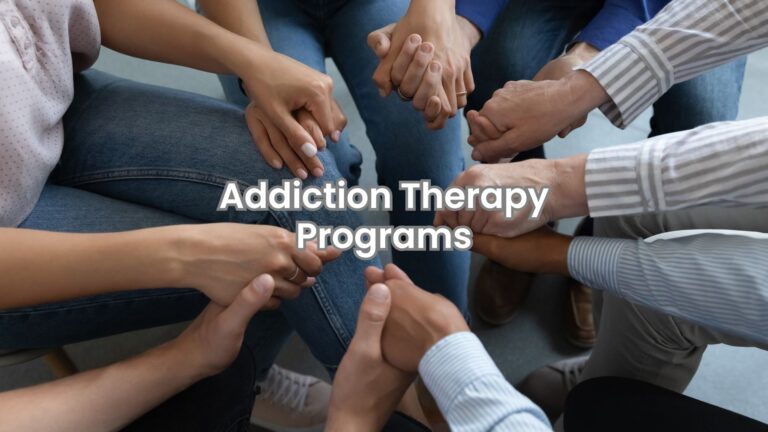Stuck in the cycle of addiction, and feel like there’s no way out?
You’re not alone.
It’s tough, and it’s real.
But guess what? There’s a way out, and it starts with finding the right Addiction Therapy Services.
In Ohio, where options can seem endless, finding the best route to recovery can be overwhelming.
Maybe you’re wondering: “Is this program right for me?” “How do I know what kind of support I need?”
Or maybe you’re in Columbus, and you’re tired of searching “addiction therapy near me” only to come up with services that feel generic, impersonal, or ineffective.
If any of that sounds familiar, you’re in the right place.
This guide breaks it all down. We’ll cover everything from finding addiction treatment Columbus options to understanding what programs are actually going to give you the best shot at long-term success.
Here’s what you need to know, without the fluff. Let’s dive in.
Why You Need the Right Addiction Therapy Services
Addiction isn’t a one-size-fits-all issue. And neither is recovery.
For anyone going through addiction therapy services in Ohio, here’s the deal: you need specific support.
That means understanding the type of addiction you’re facing, your mental health needs, and what’s going to keep you moving forward once you’re out of the initial recovery phase.
Let’s face it – recovery is hard. But the right support makes it possible.
In Ohio, whether you’re looking for addiction recovery near me or hunting for the best mental health services near me, it all starts with choosing a program that fits your unique needs.
What to Look for in Addiction Therapy Services in Ohio
1. Evidence-Based Treatments
If the therapy isn’t backed by science, skip it.
We’re talking Cognitive Behavioral Therapy (CBT), Medication-Assisted Treatment (MAT), Motivational Interviewing, and more.
These therapies have been studied and proven effective.
So if you’re looking into addiction treatment Columbus Ohio facilities, ask about their methods.
How do they help people with specific addictions? Do they offer vivitrol clinics near me if you’re recovering from opioids?
Evidence-based treatments are the difference between just getting by and actually breaking the cycle.
2. Specialized Programs Based on Substance and Severity
No two addictions are exactly alike.
Some are battling alcohol dependency, while others might be recovering from heavy substances like opioids or even polysubstance abuse (using multiple substances).
If you’re dealing with a severe addiction or something complicated like speedballing (mixing stimulants and depressants), you need a specialized program.
Look for facilities that offer alcohol addiction rehabilitation or specific support for drug dependencies.
3. Comprehensive Mental Health Support
Addiction is rarely just about the substances.
A lot of people struggling with addiction also face mental health challenges – depression, anxiety, PTSD. So you want a program that understands this.
Places offering mental health treatment centers near me, mental health therapist near me, or even inpatient alcohol treatment near me will have counselors and support for both the addiction AND the underlying mental health issues.
Breaking Down Types of Addiction Therapy Services
Here’s the kicker: different programs offer different support levels.
Some are outpatient, some are inpatient, and some mix both.
But how do you know what’s best for you? Here’s a breakdown.
Inpatient Addiction Therapy Services
- You live on-site, 24/7.
- Intensive care with constant access to therapists and medical staff.
- Ideal for severe addictions, especially those involving substances like opioids or xanax alcohol combinations.
If you’re in deep and need an environment with zero distractions, inpatient addiction rehab is your best bet.
Outpatient Addiction Therapy Services
- Flexible, with sessions scheduled around your life.
- You can live at home, work, or keep up with family obligations.
- Great for those with milder addictions or as a step-down after inpatient care.
For those in Columbus, finding addiction treatment near me for outpatient services means getting support without putting your life on hold.
Navigating Medication-Assisted Treatment (MAT)
MAT is a game-changer for those dealing with opioids or alcohol.
This approach combines meds like Vivitrol (often available at vivitrol clinic near me) with therapy to tackle addiction.
With MAT, here’s what you’re getting:
- Reduced Cravings: Medications cut down those intense cravings.
- Less Risk of Relapse: By blocking the effects of substances, it’s easier to stay sober.
- Continued Therapy: You’re not just getting medication; MAT is most effective when paired with counseling.
Holistic Therapies: Adding to Your Recovery Toolbox
Think about your recovery like building a strong foundation. Holistic therapies are the extras that make that foundation rock-solid.
These therapies don’t replace evidence-based practices – they enhance them.
So if you’re searching for adventure therapy for treatment of substance use disorder or something like art therapy, this is where it fits.
Here are a few holistic options to look for:
- Yoga and Meditation: Helps with mindfulness, reducing stress, and keeping you present.
- Nutrition Therapy: Repairing the body after years of substance use.
- Adventure Therapy: Building resilience through outdoor activities and physical challenges.
Why Aftercare Matters: Setting Up for Long-Term Success
Completing an addiction therapy program? Great.
But what about the next month? The next year?
This is where aftercare comes in.
Aftercare might include:
- Continued Counseling: Therapy doesn’t stop just because you completed the program.
- Support Groups: Community is essential. Programs like sobriety rocks movement give a support network.
- Sober Living Options: Transition housing like sober houses where you live with others in recovery.
Real Talk: Relapse Isn’t Failure
Here’s a hard truth: relapse happens.
But it doesn’t mean you failed.
Addiction therapy services that offer compassion, understanding, and continued support in Ohio are the ones that’ll help you get back up.
Expanding the Scope of Addiction Therapy Services in Ohio
You’ve made the decision to look into Addiction Therapy Services.
Now let’s make sure you get the full scope of what’s out there.
Recovery isn’t a sprint.
It’s a step-by-step journey, and the better you know your options, the more equipped you’ll be to tackle each phase.
So, what else should you consider when navigating addiction therapy services?
Here are some advanced strategies, nuanced therapy options, and real-world tools to keep the momentum going.
The Importance of Customized Care in Addiction Therapy Services
When it comes to addiction recovery, a “template” approach simply doesn’t work.
Personalisation is key.
Here’s why:
- Every addiction is unique: Whether it’s alcohol, opioids, or polysubstance, each addiction has different challenges.
- Mental health nuances: Addiction and mental health often go hand in hand. Effective therapy needs to treat both.
- Lifestyle factors: Work, family, and personal responsibilities shape what kind of program will work best.
Personalisation in addiction therapy services allows for:
- Better engagement: Therapy that’s tailored to your life will be something you stick with.
- Higher success rates: Customized therapy addresses specific triggers and situations.
- Adaptability: Life changes, and your therapy needs to keep up.
For anyone looking into addiction recovery near me, ask about customisation.
How will they adjust the treatment if your needs change?

Choosing Between Short-Term and Long-Term Programs
Not all programs are created equal in length or intensity.
This choice matters because the duration of your program can affect your long-term results.
Short-Term Programs
- Generally last 30–90 days.
- Provide a concentrated burst of support.
- Focus heavily on detox and initial therapy.
Short-term programs can work, but they often need solid aftercare to be effective.
Long-Term Programs
- Often last from 3 months to a year.
- Provide deeper, sustained therapy.
- Address underlying issues, trauma, and mental health.
If you’re in Ohio and can commit the time, long-term addiction therapy services can give you a stronger foundation.
Integrating Family in Addiction Therapy Services
Family can be a powerful support system – if involved correctly.
But it’s also a touchy subject, right? Family dynamics can either help or hurt recovery.
Here’s what’s critical about involving family:
- Educates the family: Family members need to understand addiction, not judge it.
- Builds accountability: Knowing family is part of the journey can motivate.
- Provides support: Healthy family involvement creates a network of encouragement.
Addiction recovery Columbus programs often include family therapy sessions. If you’re in Ohio, check for programs that offer family counseling or support groups to educate your loved ones.
Outpatient vs. Inpatient for Family Involvement
Certain setups work better for different family dynamics.
- Inpatient: This limits family involvement, which is good if family isn’t a strong support.
- Outpatient: Allows for more regular family involvement, ideal if they’re supportive and educated about addiction.
Family therapy can sometimes be arranged through mental health services near me that offer addiction-specific support.
Advanced Therapies to Accelerate Recovery
Beyond the basics, there are advanced therapies that can make a huge difference in recovery.
These are what turn basic therapy into something transformative.
Here are some options to look out for:
1. Cognitive Processing Therapy (CPT)
CPT is a form of cognitive-behavioral therapy designed for trauma survivors.
Why does this matter in addiction therapy? Trauma and addiction are often tightly linked.
Using CPT, you can:
- Process past trauma: Understand how trauma has impacted you.
- Rewire your response: Build healthier thought patterns and responses.
- Reduce relapse risk: By addressing trauma, triggers lose their power.
2. Biofeedback Therapy
Biofeedback therapy helps you tune into how your body responds to stress and triggers.
Using special equipment, you can monitor physiological responses – like heart rate and muscle tension – and learn how to control them.
This is especially useful for:
- Managing anxiety: Useful for those facing high-stress situations post-recovery.
- Curbing cravings: By learning how to manage physical responses to cravings.
- Building resilience: Teaches techniques to stay calm and grounded.
Biofeedback is often available at top addiction treatment rehab centers in Ohio.
3. Dialectical Behavior Therapy (DBT)
Originally for borderline personality disorder, DBT is also highly effective for addiction.
It emphasizes balancing acceptance with change, which is powerful for anyone in recovery.
DBT includes:
- Mindfulness: Staying present and managing stress.
- Emotional regulation: Handling intense emotions without substances.
- Distress tolerance: Building resilience to stress without needing an escape.
Addiction Therapy Services in the Digital Age: Teletherapy and Virtual Support
In today’s world, virtual support is huge.
For those who can’t commit to in-person therapy, teletherapy offers an option that’s flexible and accessible.
Virtual options in Ohio can include:
- Online therapy sessions: One-on-one support with licensed therapists.
- Support groups: Virtual groups that meet regularly.
- Progress tracking apps: Some programs use apps to track therapy milestones.
Handling Setbacks: What to Do When You Slip
Relapse happens. Period.
Here’s the important part – it’s not about avoiding failure. It’s about knowing what to do if it happens.
Steps to Take if You Relapse
- Acknowledge it: Denying it happened only makes things worse.
- Contact your support network: Reach out to a therapist, sponsor, or a family member.
- Reassess your plan: Look at what led to the slip and address the trigger.
- Get back to therapy: If needed, re-enter a program.
Many addiction rehab programs in Ohio offer relapse support as part of aftercare.
Creating a Sober Lifestyle That Lasts
Building a new life isn’t just about stopping substance use – it’s about creating new routines, habits, and a fulfilling life.
1. Setting Up Sober Living Goals
Goal-setting is huge for creating long-term change.
Think about:
- Daily routines: A stable daily routine keeps you grounded.
- Career or education: Setting new goals in these areas keeps you motivated.
- Health goals: Physical health impacts mental health. Fitness, nutrition, sleep – these all matter.
2. Finding Purpose Beyond Recovery
Recovery can be all-consuming, but the end goal is to find purpose in life beyond it.
Some ways to do that include:
- Volunteering: Giving back can boost self-worth.
- Creative outlets: Art, music, and writing can be powerful.
- Career development: Setting long-term goals for work or learning.
Ohio has numerous addiction rehab facilities that offer career and life skills training as part of recovery.
Mental Health and Addiction Therapy: Why Both Are Critical
Mental health and addiction go hand in hand. For anyone who’s dealing with addiction recovery near me, make sure the program offers comprehensive mental health support.
Why Dual Diagnosis Matters
Dual diagnosis addresses both addiction and mental health conditions, like depression or anxiety.
Without treating both, you’re at a higher risk of relapse.
For example:
- Anxiety can lead to a relapse as a way to cope.
- Depression may make it hard to stay motivated in recovery.
Programs that offer mental health clinics near me alongside addiction support provide the dual approach you need.
Beyond the Basics: Exploring Advanced Addiction Therapy Services for Long-Term Success
Once you’re past the initial stages of recovery, the real work begins.
Addiction Therapy Services don’t end once you’re “sober.” They expand into advanced territory that equips you to stay resilient, navigate life’s challenges, and continue growing beyond addiction.
Let’s get into the strategies and tools you can use.
The Role of Community Support in Addiction Therapy Services
Here’s a reality check: recovery without a community is an uphill battle.
In fact, addiction experts and mental health professionals agree that community support is a massive factor in long-term success.
1. Support Groups: Creating Connections with Purpose
Support groups are foundational in addiction therapy services.
They create a space to share experiences, exchange ideas, and form connections.
And whether you’re in Ohio or elsewhere, support groups vary widely in their approaches.
Types of support groups you might explore:
- 12-Step Groups: The classic, proven structure used worldwide (e.g., Alcoholics Anonymous).
- Secular Support Groups: Options like SMART Recovery focus on empowerment without the spiritual component.
- Online Groups: Great for anyone who needs flexible timing or anonymity.
Ohio offers various types of support groups for people in different stages of recovery.
Use “addiction recovery near me” searches to find local options.
2. Sober Living Homes: A Transitional Space
Sober living homes, or halfway houses, offer a middle ground between rehab and independent living.
They’re especially helpful for individuals who feel they’re not ready to transition back to full independence immediately.
Key benefits of sober living:
- Structured environment: With set rules and expectations, sober homes help maintain focus on recovery.
- Built-in support: You’re living with others who are also committed to recovery.
- Safe space: It’s a controlled environment, meaning no temptations are around the corner.
If you’re in Ohio, there are several reputable sober living homes that cater specifically to individuals who’ve completed inpatient addiction rehab.
Advanced Treatment Techniques in Addiction Therapy Services
By now, you’ve probably heard about the basics—CBT, group therapy, family therapy.
But if you’re committed to advanced, long-term recovery, it’s worth exploring additional therapy methods.
1. EMDR (Eye Movement Desensitization and Reprocessing)
EMDR is a specialized form of therapy often used for trauma, but it’s equally effective in addiction therapy.
Why? Because trauma and addiction are closely linked, and unresolved trauma often fuels addictive behaviors.
Benefits of EMDR in addiction therapy services:
- Rapid trauma processing: It works faster than traditional talk therapy for some people.
- Reduces cravings: By addressing trauma, triggers are less likely to cause relapse.
- Improves mental health: EMDR can help reduce symptoms of PTSD, depression, and anxiety.
If you’re near Columbus, Ohio, look for mental health clinics near me that offer EMDR as part of their treatment.
2. Medication-Assisted Therapy (MAT)
In some cases, medications can assist in the recovery process.
Vivitrol, for instance, is commonly used to prevent relapse by blocking the “reward” effect of alcohol or opioids.
Ohio has numerous vivitrol clinics near me that provide MAT in a controlled setting.
Benefits of MAT in addiction therapy:
- Reduces cravings: Medications like Vivitrol help prevent the desire to use.
- Eases withdrawal: MAT can make the detox process less physically taxing.
- Adds a safety net: While it’s not a cure, MAT can be a protective layer against relapse.
Life Skills Training: Building Independence After Addiction Therapy Services
Recovery is about more than stopping substance use—it’s about building a life that doesn’t need it.
That’s where life skills training comes in.
Here’s what the best addiction therapy services offer in terms of life skills:
1. Financial Literacy and Employment Support
Many individuals in recovery struggle with financial stability, job skills, or even just budgeting.
Addiction recovery columbus programs often provide financial literacy workshops or employment support.
Key areas covered in financial literacy training:
- Budgeting basics: Learning to manage monthly income and expenses.
- Debt management: Strategies for handling debt without feeling overwhelmed.
- Savings and investing: Building a foundation for future financial independence.
2. Nutrition and Physical Health
Physical health plays a huge role in mental well-being and, by extension, in recovery.
Incorporating fitness and nutrition guidance as part of addiction therapy services helps establish routines that support a sober lifestyle.
Benefits include:
- Increased energy: Balanced meals and exercise contribute to energy levels.
- Improved mood: Exercise releases endorphins, which boost mood.
- Better physical health: Poor nutrition and lack of exercise have direct impacts on mental resilience.
Some rehab centers in Ohio even offer classes on meal planning and cooking, along with gym access or yoga classes.
Addressing Mental Health as Part of Addiction Therapy Services
Mental health treatment is non-negotiable in effective addiction recovery.
In Ohio, you’ll find mental health services near me that cater specifically to individuals in addiction recovery.
Let’s dig deeper into how these two interact:
1. Dual Diagnosis Treatment
Dual diagnosis is when someone has both a mental health disorder and a substance use disorder.
If left untreated, mental health issues can trigger relapse.
Treatment includes:
- Integrated care: Therapy sessions that address both issues.
- Medication management: Psychiatrists may prescribe meds for depression, anxiety, etc.
- Holistic support: Exercise, meditation, and other mental health support.
For anyone dealing with dual diagnosis, Ohio’s mental health hospitals near me are equipped to provide dual diagnosis support.
2. Cognitive Behavioural Therapy (CBT) for Mental Health
We touched on CBT earlier, but it’s worth noting how specifically it can target mental health within addiction therapy.
CBT helps rewire the brain to respond differently to stressors and triggers.
How it works:
- Identify negative thoughts: Recognize thought patterns that lead to using.
- Challenge those thoughts: Replace them with constructive alternatives.
- Build new habits: CBT involves consistent practice to build new ways of thinking.
Setting Goals and Staying Accountable
Recovery isn’t just about surviving—it’s about thriving. And one of the best ways to thrive is through goal-setting and accountability.
How to Set SMART Goals in Recovery
The SMART goal framework is popular in business, but it’s also powerful in recovery.
SMART stands for Specific, Measurable, Achievable, Relevant, and Time-bound.
Examples of SMART goals in addiction recovery:
- Physical health: “I’ll work out 3 days a week for 30 minutes each session.”
- Mental health: “I’ll attend one group therapy session weekly for the next 3 months.”
- Financial: “I’ll save $50 from each paycheck for emergency funds.”
Building Accountability
In recovery, accountability is essential. Having someone to check in with can make all the difference.
Options for accountability:
- Sponsor or recovery coach: A mentor to help guide and check in.
- Accountability partner: Another person in recovery to support each other.
- Family or friend: A trusted person who understands and respects your journey.
Staying Resilient: Adapting to Life’s Challenges Without Relapse

Life doesn’t pause for recovery, which is why resilience is key.
Here are some resilience-building tools that can be part of addiction therapy services:
1. Mindfulness and Meditation
Mindfulness is all about staying grounded and aware in the present moment.
It’s a powerful tool for anyone facing triggers or stress.
Ways to practice mindfulness:
- Breathing exercises: Helps control physical responses to stress.
- Guided meditation apps: Try Headspace, Calm, or Insight Timer.
- Journaling: Write down daily reflections, thoughts, and progress.
2. Developing Emotional Intelligence (EQ)
Emotional intelligence (EQ) is the ability to manage emotions and build healthy relationships.
For people in recovery, high EQ helps navigate social challenges without turning to substances.
Key components of EQ:
- Self-awareness: Recognize your own emotions.
- Self-regulation: Control impulsive reactions.
- Social skills: Build strong, positive relationships.
- Empathy: Understand others’ emotions.
What Comes After Addiction Therapy Services?
Recovery is a journey, not a destination. Once you’ve completed addiction therapy, the work doesn’t stop.
Many people in Ohio take advantage of aftercare addiction recovery programs for continued support.
1. Creating a Relapse Prevention Plan
A relapse prevention plan is a personalized roadmap for navigating triggers, challenges, and stress without resorting to substance use.
Components of a solid prevention plan:
- Trigger identification: Recognize specific triggers that could lead to relapse.
- Coping strategies: Tools and techniques to manage those triggers.
- Support contacts: A list of people or professionals to contact if struggling.
Frequently Asked Questions about Addiction Therapy Services
Q: What should I look for in a good addiction therapy program?
A: Evidence-based treatments, specialized programs, comprehensive mental health support, and solid aftercare.
Q: Can I do recovery if I can’t leave my job or family?
A: Yes, outpatient programs allow flexibility. Just look for addiction recovery near me and verify that it offers what you need.
Q: How do I know if I need inpatient or outpatient care?
A: If your addiction is severe and you need a controlled environment, go inpatient. If you need flexibility and have a solid support network, outpatient may work.
Q: Does insurance cover addiction therapy services?
A: Many insurances cover both inpatient and outpatient services. Check with medmutual ohio if you’re in Ohio.
Q: Is relapse a normal part of recovery?
A: Yes. Recovery isn’t always a straight line, but with the right support, you can get back on track.
Q: What are some red flags when choosing a treatment center?
A: Lack of transparency, no evidence-based practices, and limited aftercare support.
Q: Can MAT help me quit drinking?
A: Yes, MAT helps with both opioid and alcohol dependency, often involving medications that reduce cravings.
Q: How do I find mental health support along with addiction therapy?
A: Look for programs offering mental health counselor near me or mental health therapist near me in addition to addiction services.
Q: Can I manage addiction without therapy?
A: Possible, but difficult. Professional therapy provides tools, support, and accountability that make recovery more sustainable.
Q: What’s the difference between rehab and therapy?
A: Rehab often includes medical detox and intense, structured support. Therapy is typically less intensive, often part of ongoing recovery.
Final Thoughts: Choosing Your Path to Recovery
You’re not here by accident.
If you’re reading this, you’re ready – or at least thinking about it.
Addiction therapy services in Ohio have a lot to offer, but the best choice comes down to what’s right for you.
Take the first step. Reach out.
Maybe it’s Ridgeline Recovery at 491 Georgesville Rd, Columbus, OH, or a program closer to your area. Whatever you choose, make sure it’s a place that’s ready to support you through every part of the journey – from detox to aftercare and beyond.
Call Us Now!
If you or a loved one is struggling with heroin or alcohol dependency, reach out to Ridgeline Recovery Center in Columbus, Ohio, today. At Ridgeline Recovery, we offer a path to hope and healing. Our comprehensive Addiction Recovery services include Addiction Therapy, Addiction Treatment, Vivitrol Clinic and specialized Mental Health Services designed to support your journey to recovery.
We provide Aftercare Programs and Peer Support to ensure you have ongoing assistance after treatment. Our dedicated team offers Case Management and Child Services for those needing extra support. For individuals who prefer a faith-based approach, we offer Faith-Based Recovery options.
Our programs feature Group and Individual Counseling, along with Medication-Assisted Treatment (MAT) to address your unique needs. We also have an Intensive Outpatient Program (IOP) and a Partial Hospitalization Program (PHP) for more structured care.
Our team includes Registered Nurse Services, Psychiatric Services, and Therapeutic Behavioral Services (TBS) to provide comprehensive support throughout your recovery process. We work with various Insurance Coverage plans to help you access the care you need.
Don’t wait—contact us now to start your journey toward a brighter future with Ridgeline Recovery.
For more stories and information Contact Us, visit our Blog page and Stories & Highlights.

